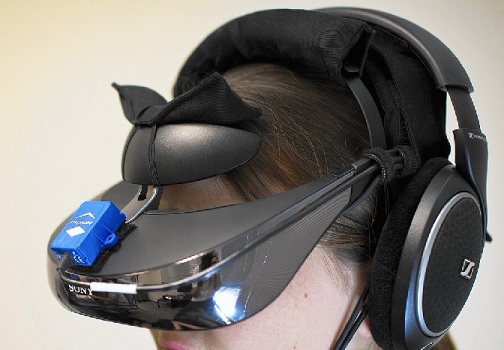On this Veterans Day, many pause to reflect on the heroic action taken by those in the armed forces. Many have fought and lost their lives in battle. And many have fought and feel like they are losing their lives to Post-Traumatic Stress Disorder (PTSD).

PTSD causes reactions to traumatic or horrific events, and the disorder is often linked to those who have returned from active duty in the military. And although no treatment will ever completely erase the memory of horrific events, some therapies are showing great promise in helping those who suffer from PTSD regain a sense of normalcy in their lives. Exposure therapy, which uses a virtual reality program showing scenes from war, is one of them.
The University of Central Florida (UCF) launched a PTSD clinic in 2011, and since that time, more than 150 veterans and active-duty military members have become a part of a study about the effects of exposure therapy on PTSD. Those in the program are hoping to rid themselves of PTSD-related symptoms such as flashbacks, nightmares, heightened anxiety and general avoidance of places and situations that may trigger a terrible memory. At this time, exposure therapy is one of the few therapies found truly effective in the treatment of PTSD. The goal is to continuously expose patients to traumatic events until they experience a reduction in effects.
In the study underway at UCF, veterans in the program not only wear a virtual reality mask that simulates scenes from Iraq and Afghanistan, but other senses are also engaged. This study also replicates some of the smells that the patients may remember from the event, including middle-eastern spices, burnt rubber and body odor. Each virtual reality session lasts 90 minutes, and as expected, they can be extremely taxing on the patients.
Understandably, some patients and their family members or loved ones worry that exposure therapy will worsen symptoms, but so far, that has not been the case.
“It seems like a horrible treatment, but it really, really works,” said Dr. Deborah Beidel, the study's principle investigator and Pegasus professor of psychology at UCF.
The program underway at UCF is also unique in that it combines group therapy with exposure therapy, addressing not only fears that come to light during the exposure therapy, but social and depression issues as well. The UCF study presently runs two programs: a 17-week program and a three-week intensive program. Both are free.
The UCF exposure therapy program accepts active duty military members, veterans who have been to Iraq and Afghanistan and those who have had less-than an honorable discharge or are homeless. The study is funded by the Department of Defense.
For more information, visit http://psychology.cos.ucf.edu/ucf-restores/clinical-research-programs/ptsd-treatment/.
Via the Orlando Sentinel
Advertisement
Learn more about Electronic Products Magazine





